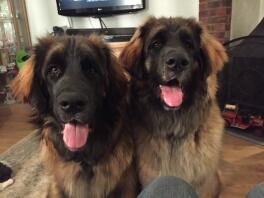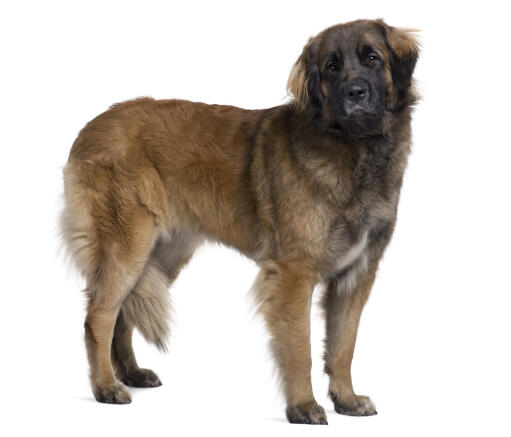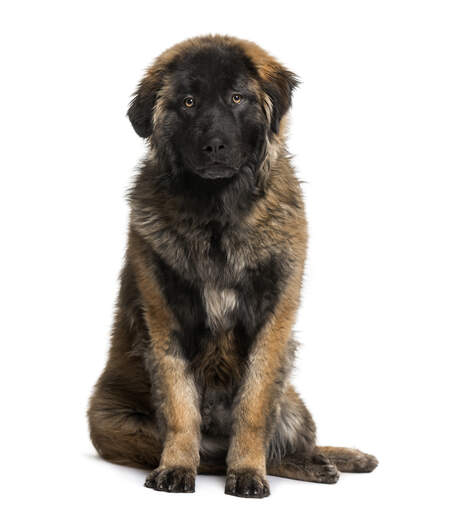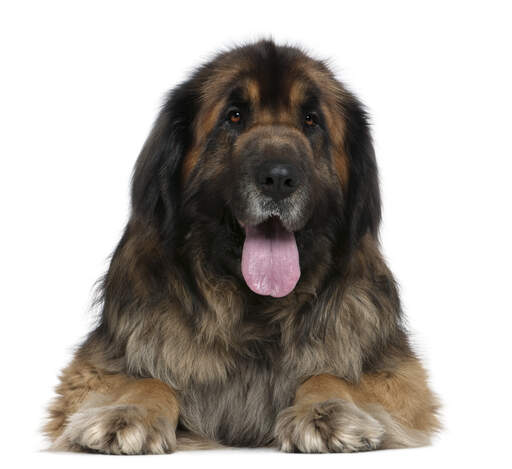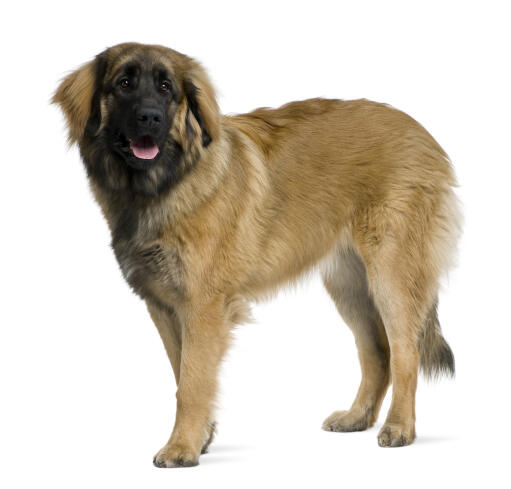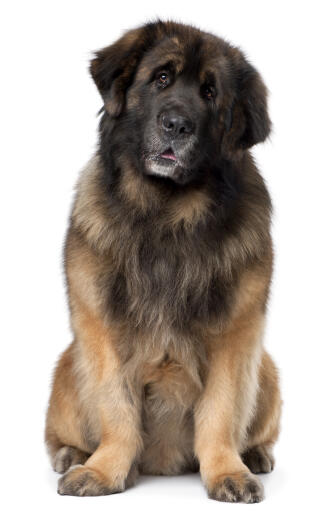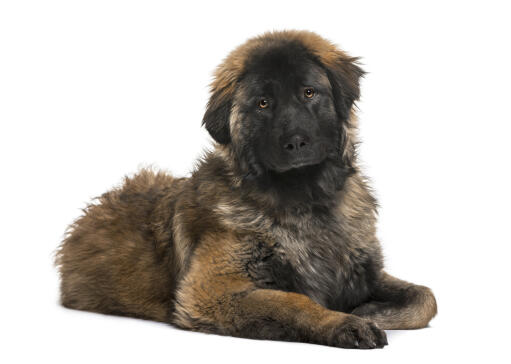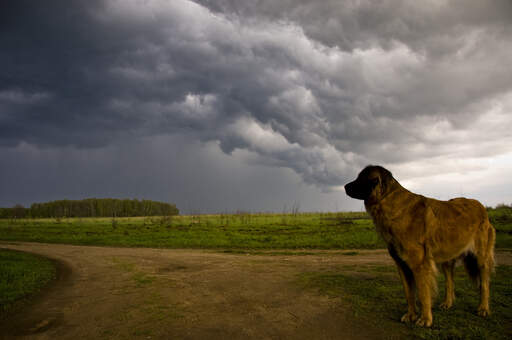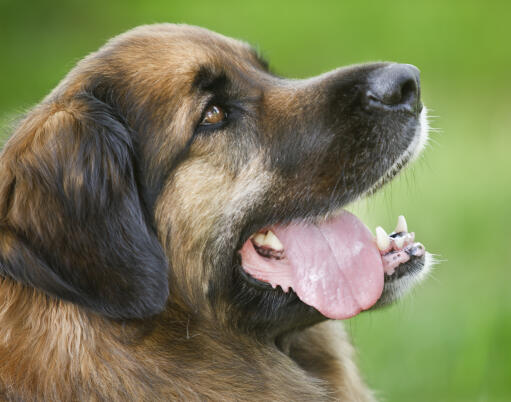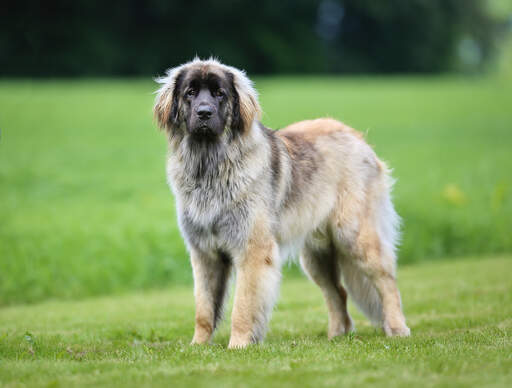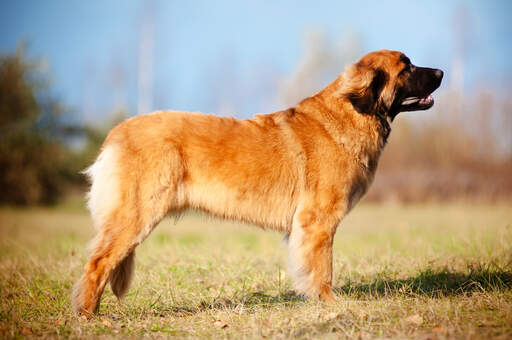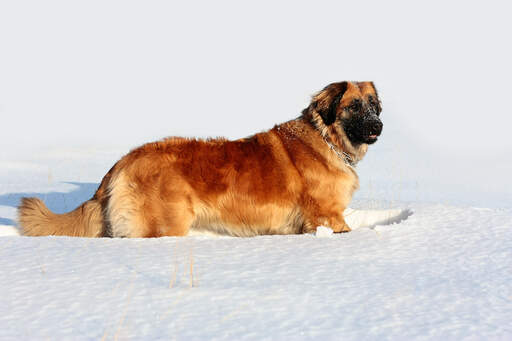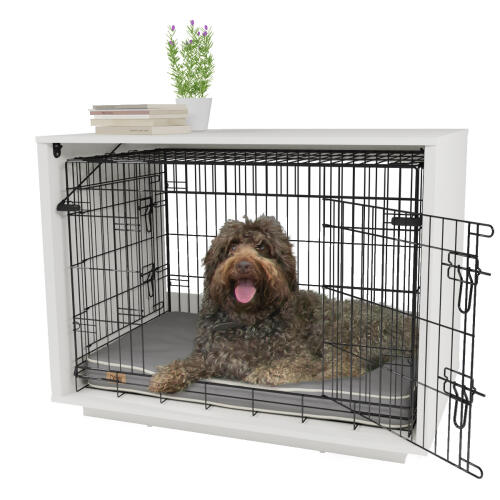Leonberger hund











History
The Leonberger was first officially registered as a breed in 1846 by Heinrich Essig from Leonberg in Germany. Thought to have been developed by crossing a Newfoundland, St Bernard and Pyrenean Mountain Dog, however, as early as 1585, dogs of the same description had already been documented, so the real origin is unknown. They were used as farm dogs, able to pull small carts and act as watchdogs.
Behaviour
Leonbergers are family dogs, happy surrounded by people and fit well into most homes; however they are huge. As long as they are with their family they are content and happy. They are excellent with other pets, dogs and children and tend to be submissive towards members of their human family. They are now bred for use as water rescue dogs, as they are powerful swimmers and have a natural affinity with water. In some parts of the world they are still used to pull carts. They are intelligent, loyal, confident, not easily spooked and playful. They are kind and rarely show signs of aggression.
Training, as with all dogs, is important but more so with a breed this size. An untrained Leonberger dragging you down the road would not be ideal. Obedience can take time, but this is mainly due to their daft, playful nature rather than their inability to learn. Leonbergers have a double coat. The long outer coat lies flat to the body, concealing a soft dense undercoat. They do moult profusely. Regular brushing is important, but the breed should not be shaved as they can cause the fur to grow back curly and prevent the dogs natural temperature regulation. A 'drag' comb should be used instead. For such a large dog, they don't require masses of exercise. A daily walk is sufficient to keep them happy as long as you are with them to give their ears a scratch when needed.
Health wise, they are generally a healthy breed and strong. They can suffer from Bloat, so it is best to feed them twice a day, instead of one large daily meal.
Temperament
Leonbergers have an authoratitive and athletic temperament. For a giant dog they are surprisingly athletic and enjoy a decent walk everyday. Large steadfast dogs, Leonbergers develop protective instincts as they mature. Dog aggression can be a problem with this breed and two Leonbergers of the same sex should not be kept together.
Early socialisation and regular training are important with this breed in order to get a well rounded respectful dog.
Health Problems
Health problems that can affect Leonbergers include canine hip dysplasia (CHD), elbow dysplasia, osteochondritis (a type of cartillage inflammation), Addisons disease (a hormonal disease with some serious symptoms), blood clotting disease and heart disease.
Breed Details
- Status: Common
- Life Expectancy: 6 - 9 years
- Vægt: 50 - 77 kg
- Højde: Male 29 - 31" Female 26 - 29"
- Rare: Nej
- Coat: Medium
- Grooming Requirements: More than once per week
- Town or Country: Land
- Minimum Home Size: Large House
- Minimum Garden Size: Large Garden
- Breed Type: Working Dog
- Størrelse: Giant
- Energy Level: Medium
- Exercise Required: Over 2 hours
Billeder af Leonberger
